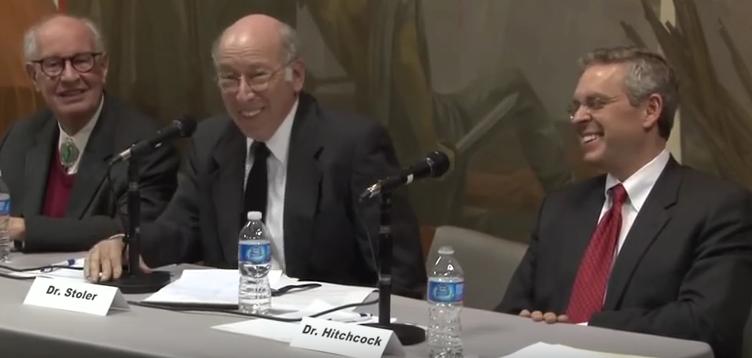Historians Predict the Past: An Academic Urban Legend? October 25, 2015
Author: Beach Combing | in : Actualite, Contemporary , trackbackHere is a nice passage from Tony Judt’s Postwar (2005), a wonderful book if you’ve not yet had a chance.
Unlike memory, which confirms and reinforces itself, history contributes to the disenchantment of the world. Most of what it has to offer is discomforting, even disruptive – which is why it is not always politically prudent to wield the past as a moral cudgel with which to beat and berate a people for its past sins. But history does need to be learned – and periodically re-learned. In a popular Soviet-era joke, a listener calls up ‘Armenian Radio’ with a question: ‘Is it possible’, he asks, ‘to foretell the future?’ Answer: ‘Yes, no problem. We know exactly what the future will be. Our problem is with the past: that keeps changing.’
It is a cute joke and it is worth telling to history students because it immediately gives some sense about how fissile the past is: ice crystals that melt and then reform in new constellations. However, Beach ran across a second very similar version of this story. This came in a question and answer session at the end of a lecture. The brilliant Mark Stoler was making the point that documentation keeps coming (World War II Myths, Misconceptions and Surprises, 2011): the relevant section is in the last five minutes.
https://youtu.be/79KU997m9o4
You always have new questions to ask, because every generation that looks at the past has new questions to ask in light of its own problems and this leads to new sources…
This leads, in turn, to another question and Stoler returns to the point about making the past anew (the photo above is a screen capture from the final line).
I’ve got a wonderful answer for that: when President Clinton was impeached [1999] I received a call from the local newspaper saying how will this look in ten years and I said that depends on what happens over the next ten years! And he said that’s exactly what one of your colleagues said to me a few minutes ago but he added a quip as my colleague always did. Historians do not predict the future, historians predict the past.
Stoler’s report has all the characteristics of a genuine anecdote: if this had been told and retold it would have been the teller who made the ‘quip’. Is this the origin of Judt’s anecdote, which perhaps flowed in and out of American history seminaries in the very late 1990s: the telephone in both is curious? Perhaps. But Judt’s account has an extra dimension for the Soviet context. The totalitarian answer is that we control the future because we decide what happens: it is the past that we have to rearrange in function of that. In some senses Stoler’s anecdote would have perhaps fitted better for the point that Judt was making.
Is this possibly a historian’s urban legend: any other instances, drbeachcombing At yahoo DOT com



